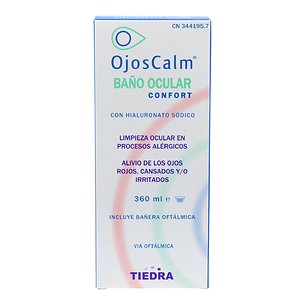No products

How to Protect Your Eyes from Pool Irritation: Tips and Solutions
How to Protect Your Eyes from Pool Irritation: Tips and Solutions
Eye irritation is a common problem for many swimmers, both recreational and professional. In this post, we will explore the causes of this discomfort, the accompanying symptoms, and how you can prevent and treat eye irritation caused by pool chlorine. Additionally, we will offer tips on proper pool maintenance to minimize this issue.
Common Causes of Eye Irritation in Pools
The main cause of eye irritation in pools is the presence of chlorine and other chemicals used to keep the water clean and free of bacteria. Although these products are necessary, they can cause a reaction in sensitive eyes. In addition to chlorine, other factors such as unbalanced pH and the presence of organic contaminants can also contribute to eye irritation.
Chlorine, when combined with sweat, urine, and other organic waste present in the water, forms chemical compounds called chloramines, which are highly irritating to the eyes. Additionally, pool water can contain dirt particles and microorganisms that can also cause discomfort.
Symptoms of Pool Eye Irritation
The symptoms of pool eye irritation can range from mild discomfort to more intense pain. The most common signs include:
- Redness
- Itching
- Watery eyes
- Burning sensation
- Blurred vision
In more severe cases, prolonged exposure to chlorine and other chemicals can lead to chemical conjunctivitis, an inflammation of the conjunctiva that lines the inside of the eyelids and the surface of the eye. If you experience these symptoms persistently, it is advisable to consult a healthcare professional.
Prevention of Pool Eye Irritation
There are several strategies you can use to prevent eye irritation when swimming in pools:
Use of Swim Goggles
Using swim goggles is one of the most effective ways to protect your eyes from chlorine and other irritants. Make sure the goggles are of good quality and fit properly to prevent water from entering. There are goggles with special coatings that reduce fogging and provide clear vision underwater.
Eye Rinse
After swimming, rinse your eyes with clean water or use specific products for eye cleaning to remove any residual chlorine that may be left. The use of sterile saline solutions is highly recommended as they help clean and lubricate the eyes effectively.
Avoid Rubbing Your Eyes
It's common to want to rub your eyes when they feel irritated, but this can worsen the situation. Rubbing your eyes can cause more irritation and spread bacteria, increasing the risk of infection.
Take Breaks from the Pool
If you experience frequent eye irritation, consider taking longer breaks between swimming sessions. This will allow your eyes to recover and reduce chlorine exposure.
Recommended Treatments for Chlorine-Irritated Eyes
If you already have irritated eyes, there are several treatments you can try:
Eye Drops
Eye drops can help relieve dryness and irritation. Look for drops specifically for redness and eye irritation. Lubricating drops can be especially useful as they provide a protective layer on the surface of the eye.
Cold Compresses
Applying cold compresses to closed eyes can reduce inflammation and provide immediate relief. Simply soak a clean cloth in cold water, wring it out, and place it over your eyes for a few minutes.
Antihistamines
In cases of severe eye irritation, antihistamines can help reduce inflammation and itching. Consult a healthcare professional before using any medication.
Education on Proper Pool Maintenance
Proper pool maintenance is crucial to minimize eye irritation. Here are some important tips:
- Keep chlorine levels within recommended ranges. This not only ensures the water's cleanliness but also reduces the amount of irritating chloramines.
- Regularly check and adjust the pH to ensure it is balanced. A balanced pH (between 7.2 and 7.8) minimizes eye irritation.
- Clean the pool frequently to prevent the buildup of contaminants. Remove leaves, insects, and other debris from the water and ensure the filters are working properly.
- Shower before swimming. This helps remove sweat and other contaminants from the body, reducing the amount of organic waste that can react with chlorine.
By following these tips, you can enjoy your aquatic activities without worrying about eye irritation. Prevention and proper maintenance are key to keeping your eyes healthy and enjoying a pleasant swimming experience.



